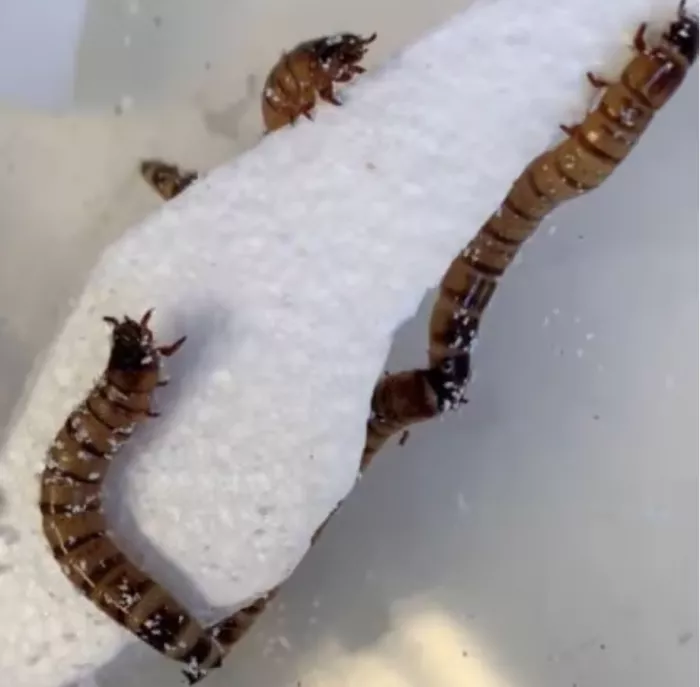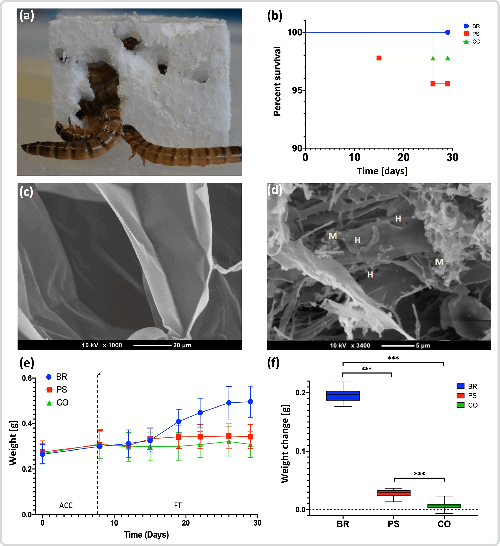A research team from the University of Queensland (UQ) in Australia believes that the seriousness of the problem of plastic waste has led scientists to find answers in a wide range, and this search has led them to find hungry small animals called "super worms". These tiny creatures have now been shown to have a healthy appetite for plastic waste, researchers can track specific enzymes in their intestinal bacteria, convert them into energy, and even cause these worms to gain weight**
The zophobas Morio species in the research center have been awarded the title of "super worm" because of their large and strong characteristics. Research has begun to suggest their potential to degrade plastic waste. The research team of the University of Queensland studied these possibilities by studying the intestinal microbiome of zophobas Morio, which was placed in different diets within three weeks. Some of them were fed wheat bran, another group was only fed polystyrene, and another group was not fed anything.

This has led to considerable differences in the intestinal microbiota. The worms that starved and fed polystyrene showed less microbial diversity and higher opportunistic pathogens. Although the polystyrene group experienced these negative health effects, they still gained weight due to their plastic diet.
Dr Chris rinke, who led the study, said: "we found that super worms fed only polystyrene not only survived, but even gained a little weight. This shows that worms can obtain energy from polystyrene, probably with the help of their intestinal microbes."
Using a technique called metagenomics, scientists were then able to identify a group of bacterial enzymes responsible for degrading polystyrene, supporting the assumptions made in earlier studies. This is the first insight into the metabolic pathway that causes superworms to degrade polystyrene. Scientists say this process even produces valuable by-products.

Dr rinke said: "super worms are like small recycling plants. They use their mouths to tear up polystyrene and feed it to bacteria in their intestines. The decomposition products of this reaction can then be used by other microorganisms to create high-value compounds, such as bioplastics."
These findings complement a growing number of findings that show that enzymes can degrade plastic materials and therefore can play an important role in our waste management efforts. These include quick acting enzymes that can decompose plastics within 24 hours, enzymes that can reduce plastics to a single molecule, enzymes that can be embedded in plastic materials to help them decompose, and engineered "super enzymes" that can swallow waste at a high speed.
The team at the University of Queensland has a similar ambition, hoping to design versions of these enzymes so that they can work with the mechanical system of the recycling plant to biodegrade the crushed plastic. Researchers are now turning their attention to this possibility. First, they are trying to cultivate the intestinal bacteria of super worms in the laboratory and test their ability to degrade polystyrene.
Jiarui sun, co-author of the study, said: "then we can study how to expand the process to the level required by the entire recycling plant."
This study was published in microbial society 》In magazines.